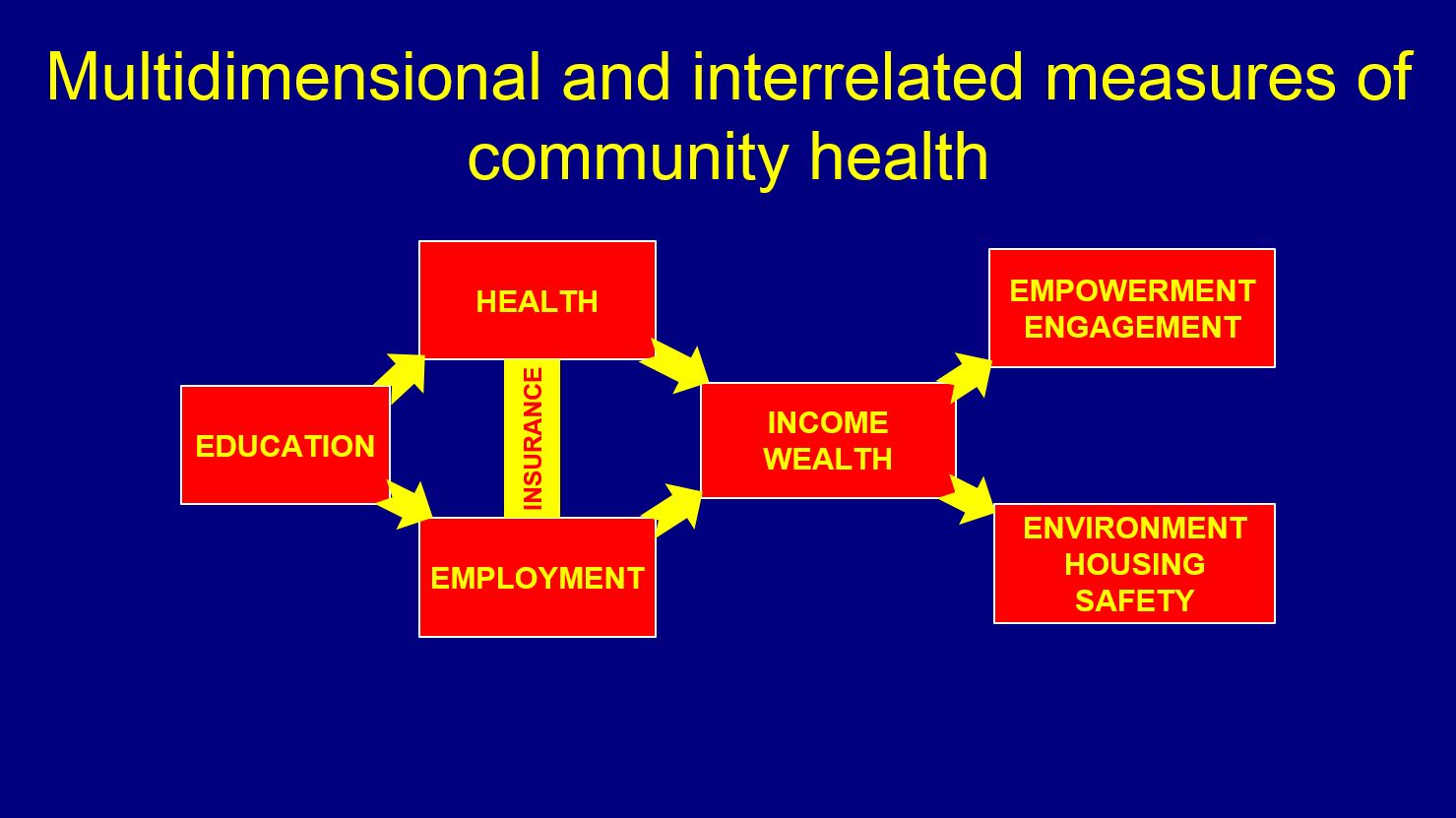 Figure 1: Multidimensional and interrelated measures of community health. Image by Frank FranklinFrank A. Franklin, M.D., M.P.H., Ph.D. - Professor and Chair, Department of Maternal and Child Health, School of Public Health
Figure 1: Multidimensional and interrelated measures of community health. Image by Frank FranklinFrank A. Franklin, M.D., M.P.H., Ph.D. - Professor and Chair, Department of Maternal and Child Health, School of Public Health
frankln@uab.edu
Dear Students,
The United States, among similar high-income countries, ranks low on many health measures (e.g., infant and maternal mortality). Also, within the U.S., there are twofold differences in these health measures between whites and African-Americans. Socioeconomic factors, such as education, employment, wealth and family/social support, and personal health behaviors like diet and exercise, unsafe sex and the use of alcohol and tobacco account for 70 percent of these deficits and inequities while health care (e.g. access to care and quality of care) is responsible for only 20 percent. Hence, a larger view of community health includes multidimensional and interrelated measures such as income, employment, education and training, health care, housing, income segregation, neighborhood crime, and civic empowerment and social engagement (see Figure 1). By these measures, I diagnose the city of Birmingham as being in very poor community health.
 UAB assistant professor of physical therapy Christopher Hurt, Ph.D., (left) presents information about ResistX at the conference at the College of Sports Medicine in Boston. Photo courtesy of Robert HergenrotherMark Linn - Copy Editor
UAB assistant professor of physical therapy Christopher Hurt, Ph.D., (left) presents information about ResistX at the conference at the College of Sports Medicine in Boston. Photo courtesy of Robert HergenrotherMark Linn - Copy EditorFigure 1: Multidimensional and interrelated measures of community health. Image by Frank FranklinFrank A. Franklin, M.D., M.P.H., Ph.D. - Professor and Chair, Department of Maternal and Child Health, School of Public Health


